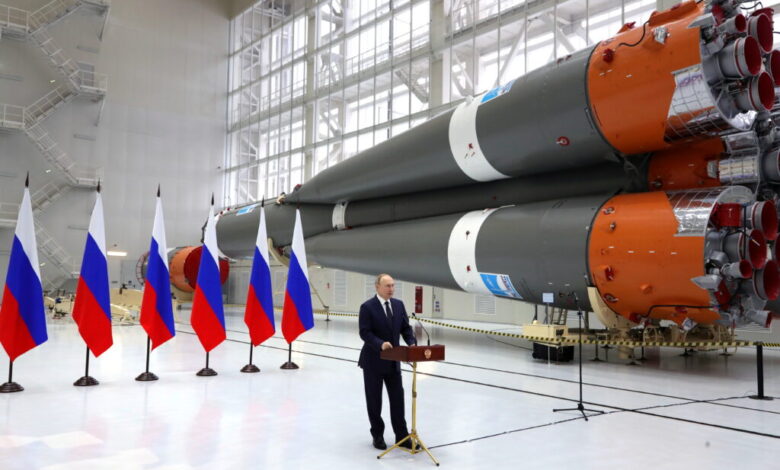U.S. Raises Concerns Over Russia’s Alleged Development of Space Based Anti-Satellite Weapons

The United States has expressed alarm over intelligence reports suggesting that Russia is developing new anti-satellite weapons with nuclear capabilities. John Kirby, a senior spokesperson for the White House, made comments regarding this potential national security threat after a warning was issued by a member of the House of Representatives.
While Kirby did not provide specific details about the alleged threat, he emphasized that there is no immediate danger to U.S. citizens. He stated, “We’re not talking about a weapon that can be used to attack human beings or cause physical destruction here on Earth.”
President Joe Biden has been briefed on the intelligence, and Kirby highlighted that the administration is treating the weapon’s development “very seriously.” The President has reportedly ordered direct diplomatic engagement with Russia in response to this concerning development.
Russia has dismissed the U.S. claims, accusing the United States of leveraging the alleged anti-satellite weapons threat to pressure Congress into providing additional aid for Ukraine.
On Wednesday, House Intelligence Committee chairman Mike Turner issued a cryptic warning about a major national security threat, sparking speculation in the capital. Turner and other committee members met with National Security Advisor Jake Sullivan to discuss the matter further.
“We all came away with a very strong impression that the administration is taking this very seriously and that the administration has a plan in place,” said Mr. Turner after the meeting. “We look forward to supporting them as they go to implement it.”
While the idea of space weaponry may seem like science fiction, military analysts have long emphasized that as technology advances, space will become a critical frontier in future conflicts. The developments in U.S.-Russia relations regarding these alleged anti-satellite weapons will likely have significant implications for international diplomacy and space security.



